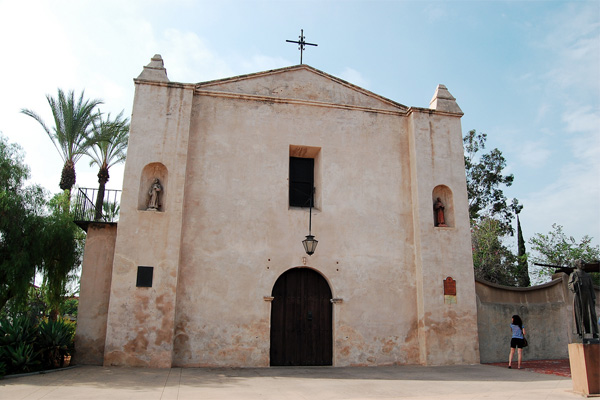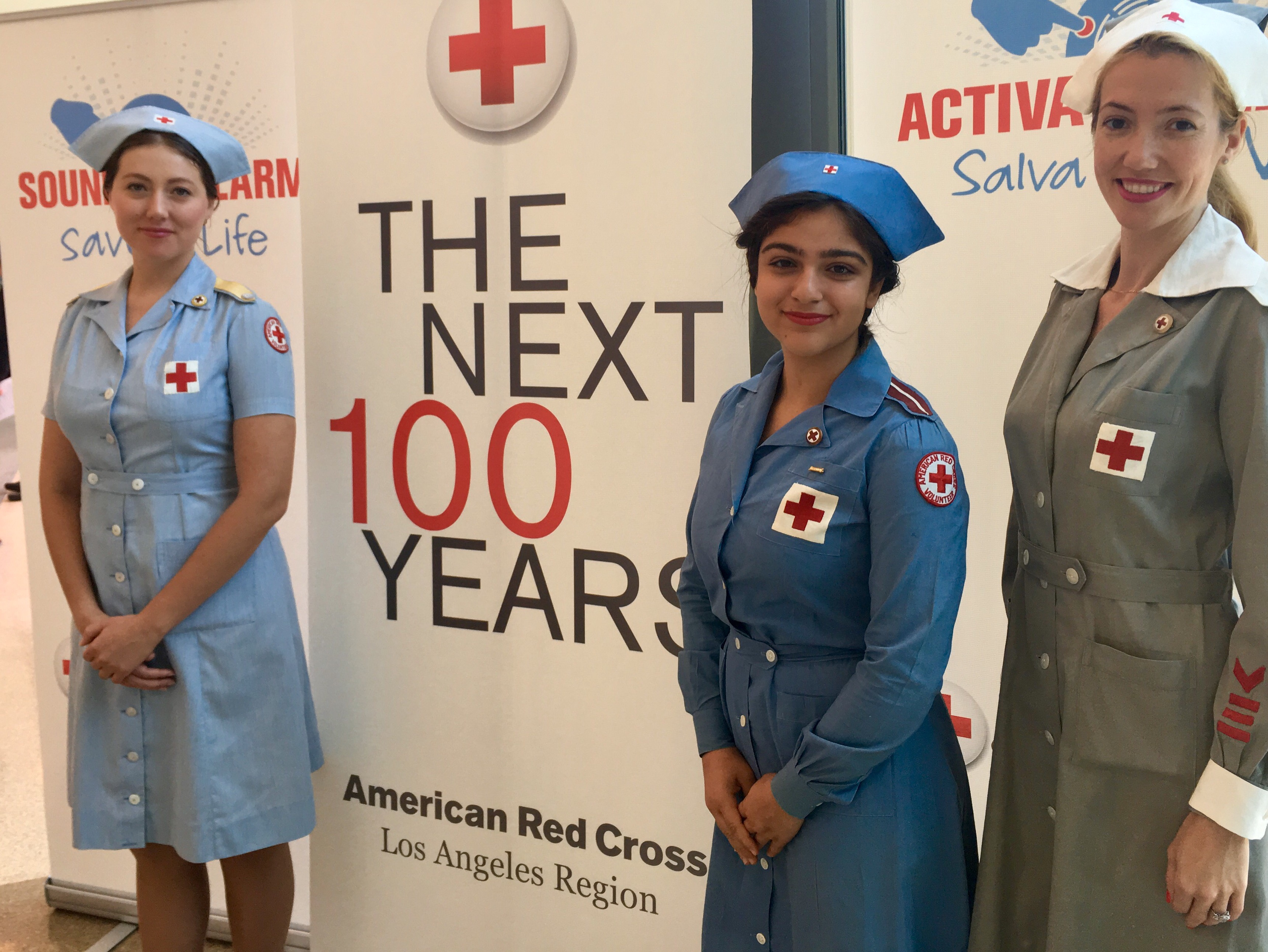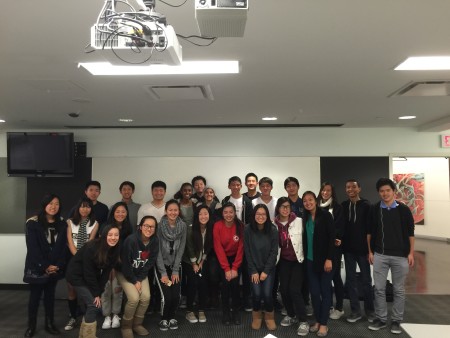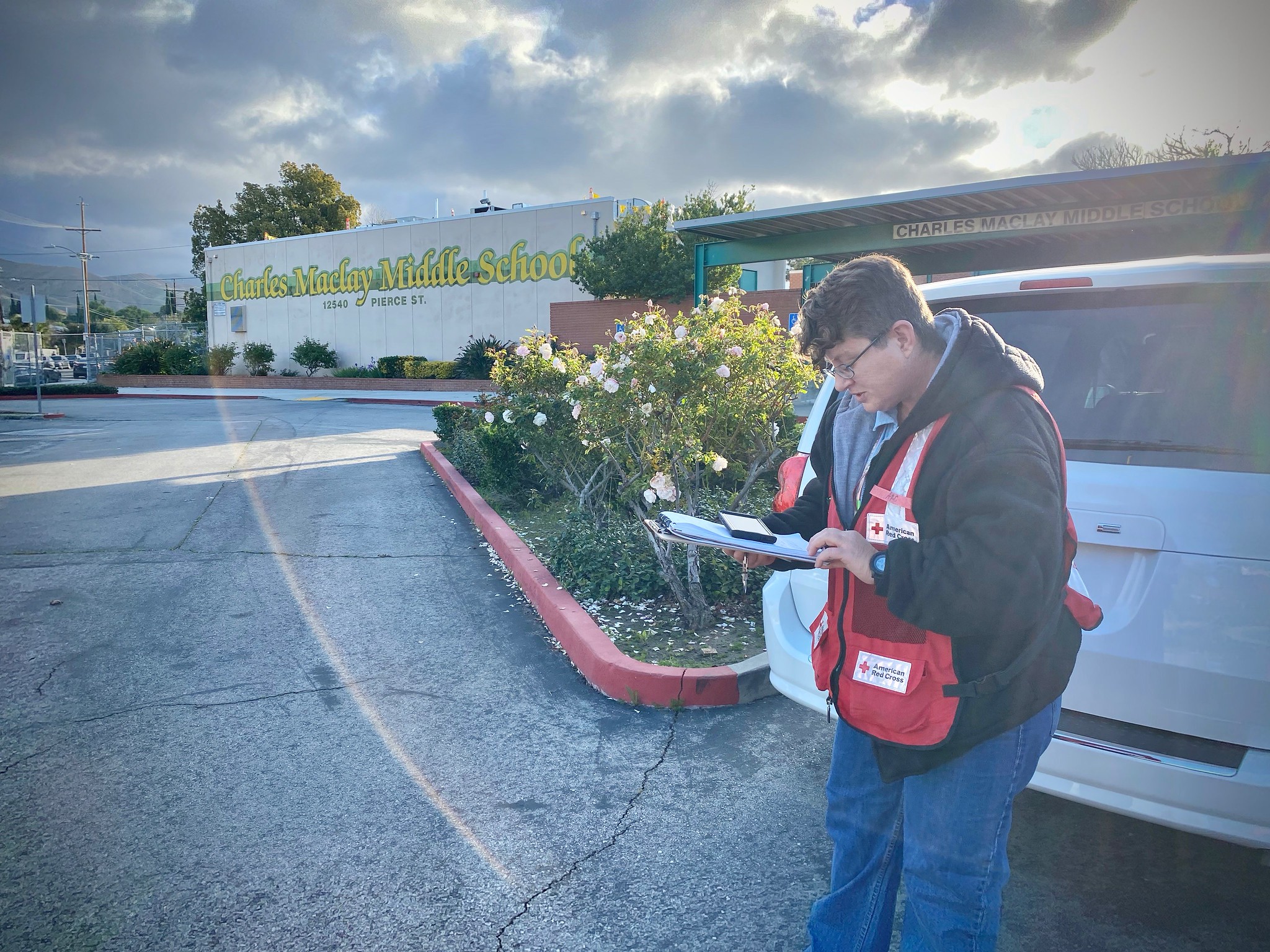By Sean Steinberg, Red Cross LA AmeriCorps
Last month, I spent the day renovating a dilapidated structure attached to a centuries-old San Gabriel Mission as part of the AmeriCorps Week of Service.
Like many of you reading this, I’m a Red Crosser. I’m also an AmeriCorps member. If you don’t know what that is, think “domestic Peace Corps.” Regardless of our affiliations, there’s a certain commonality that binds those of us who choose to volunteer.
We all have something hardwired into our brains telling us to give back, because we believe – to paraphrase a famous superhero maxim – that with great privilege comes great responsibility.
We understand that duty goes beyond friends and family, neighborhoods and workplaces. It’s a universal responsibility to our fellow humans. It’s not about giving back to people who look like us, or talk like us, or believe like us – it’s just about giving back, period.
Maybe that’s why Red Crossers like me were drawn to the organization in the first place, because of its core principles like humanity, impartiality, unity, and universality.
In much the same way as the Red Cross teaches us that there is no such thing as a “small” disaster, there is no single definition of a “humanitarian,” nor of the type of work one does. It is not restricted to massive, life-or-death emergencies. You don’t have to risk your life to make a difference.
In early March, my humanitarian work brought me to the San Gabriel Mission.
That experience, and the satisfaction that went with it of getting to help three dedicated women revive a treasured piece of their community, was the highlight of my AmeriCorps service so far. Something about waking up early on a Saturday morning, driving to an unfamiliar neighborhood, grabbing your toolkit, and putting your back into something that really matters to somebody, even – or especially – for somebody you do not know and may never see again, left an indelible mark on me.
The time I spent renovating a dilapidated house attached to a centuries-old mission may not have changed the world. Sanding door frames and spraying for termites didn’t solve world hunger. However, the end-result helping restore a treasured monument was about more than just the physical labor.
To me, it was about making good on a commitment to the community and the people in it.
Some people may think it crazy to work for no pay. But maybe that’s because they don’t yet understand what many Red Crossers already know: that learning to live for more than yourself – and being more than happy to do so – is the payment.
These women told me all about the history of this small adobe structure. How it was built, who had lived within its walls, and how it maintained its identity as the world around it was transformed by time. To them, that was something worth preserving.
So they put a call out on the Internet for someone – anyone – to come lend a hand. Week after week, they showed up to work, and week after week, nobody was ever there to help shoulder the burden.
So they carried on alone.
Then, one day, a total stranger showed up – not because he knew them, or the mission, or the neighborhood, but simply because they needed help. So we spent the day together, swapping life stories as we toiled away. And then, with the day’s work complete, I went my way and they went theirs.
It may not sound like much, but the gratitude of those women and the pride that this small act of service generated was more rewarding than I would ever have guessed.
I left that day with a realization.
If we could all just take one hour out of our day, one afternoon out of our week, or one week out of our year to pitch in to something that matters someone, regardless of what the something is who the someone, we will be on our way a better world.
At the end of the day, no matter the size or the scale, any act of compassion counts.





